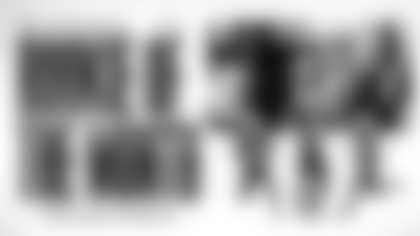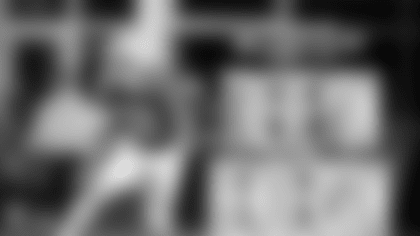There is always a fine line between being aggressive and being smart. That was on full display in the final minutes of New England's hold-on-for-dear-life 37-31 win over the Bills on Sunday afternoon at Gillette Stadium.
The Patriots blew a pair of 14-point leads in the game, having led 17-3 in the second quarter and 31-17 in midway through the third quarter. The Bills and Ryan Fitzpatrick would just not go away, at least not until a miscommunication between the quarterback and his receiver led to an easy Devin McCourty interception in the end zone in the waning seconds.
But the reason that Buffalo was in range for a potential game-winning TD, and the Patriots defense had to "make a play" to "save the day" was once again the inability of the Tom Brady-led offense to shut the door on the scrappy visitor.
After Buffalo cut the score to 34-31 on a Fitzpatrick 2-yard touchdown to Donald Jones, the Patriots took possession at their own 32 with 7:40 to play. It was another chance for the team's much criticized four-minute offense (the name given to a situation where the team is leading and trying to run out the clock to victory) to get the job done. And it actually performed quite well, until it mattered most.
Stevan Ridley got things going with a 5-yard run, his first of seven carries on the drive. Brady picked up the ensuing third-and-five with a 12-yard completion to Brandon Lloyd. A few plays later a 23-yarder to Welker pushed things into field goal range before a 10-yard Ridley run moved things to the verge of a touchdown at the Buffalo 2-yard line with 2:54 to play.
That's when the Patriots – Bill Belichick and offensive coordinator Josh McDaniels -- made a strange decision to hurry to the line of scrimmage and snap the ball quickly rather than to let the play clock run down and continue to try to eat away at the time Buffalo might have to attempt another scoring drive.
[

](http://www.gopjn.com/t/RUBKRktHRkBKSElGRUBISEtERw)After the quick snap, which actually caught CBS TV cameras in a replay, Ridley was tackled for a 2-yard loss. Two incompletions later – the second a missed TD opportunity in which Brady one-hopped a possible score to Danny Woodhead in the front right side of the end zone – the Patriots had to settle for the 27-yard Stephen Gostkowski field goal with more than two minutes still remaining on the clock.
Not only did the drive not eat up enough time – although taking 5:41 off the clock was still a decent effort – it also only resulted in a field goal, leaving the game a one-score deficient for the visitors. A Bills team that had scored on five of its previous seven possessions was still very much alive.
In the end the Bills would not only turn the ball over in the end zone when little-used rookie receiver T.J. Graham ran the wrong route, but also lost a pair of timeouts on the final drive when a pair of their players were injured in the final two-minutes, by rule costing Buffalo the chance to otherwise stop the clock.
It all worked out in the end for New England, but Belichick himself acknowledged the questionable decision to hurry to the line in his team's late game situation on the goal line. New England often runs a hurry-up attack, or tries to catch the defense off-guard in certain situations, but the question is whether or not the circumstances at the end against Buffalo was one of those times when such an approach was advisable.
"If it doesn't work, if you don't get it in, then you certainly would be better not doing it and taking more time off the clock," Belichick admitted. "If we had gotten it in and made it a two-score game, I don't want to say that would have sealed it, but it certainly would have made it a two-possession game for Buffalo instead of the one-possession game that it ended up being. That's the dilemma there: if you try to manage the clock and you don't complete the execution of the situation, then that's not really successful and if you don't complete the situation, then it's not successful and if you don't manage the clock, then that's not successful. When you try to sometimes do too much managing of the clock, then the criticism is you should just do what you're doing to be successful and why change at that point? Right, that's the balance you're trying to strike. Bottom line is you have to execute the situation. If you do that, then that's good and if you don't, then there will be plenty of 'what if?'"
Fortunately, the decision didn't come back to bite the Patriots as they improved to 6-3 on the year and built to a two-game lead in the AFC East. But decisions like the call on the goal line can become make-or-break issues in key NFL games more often than not, especially late in the year and into the postseason.
New England got away with one this time. But even Belichick admitted it's one of those calls that's worth a second-look, a second-consideration. And that makes it a perfect topic for today's Take Two-sday!












































